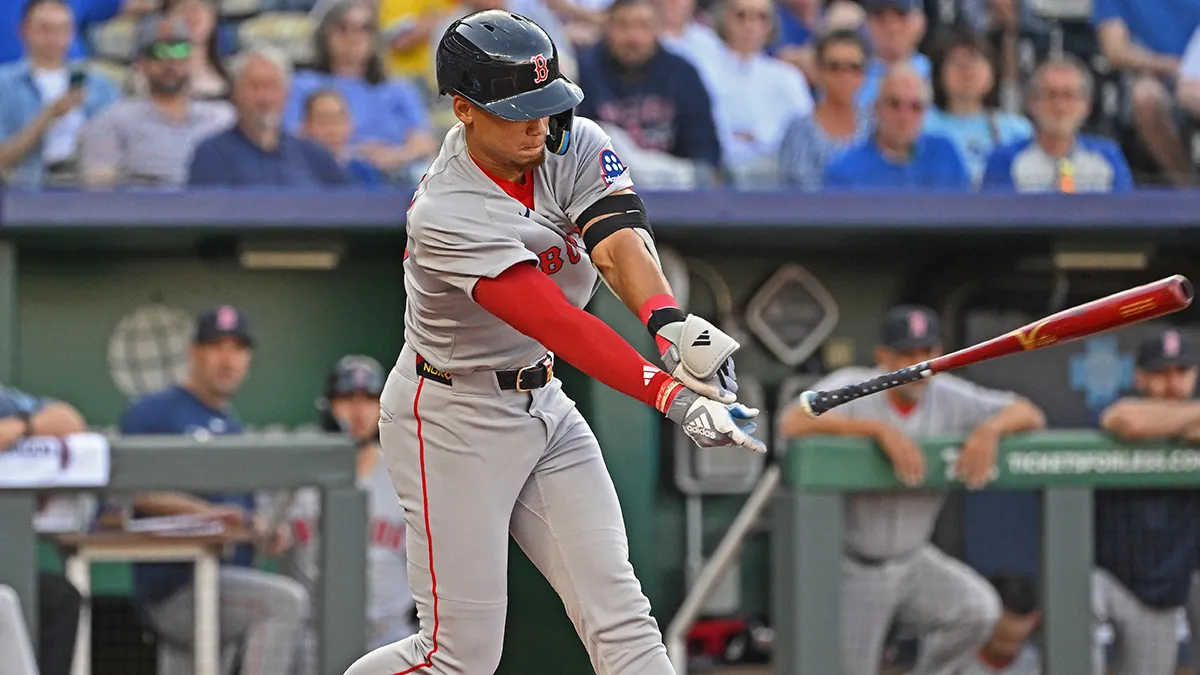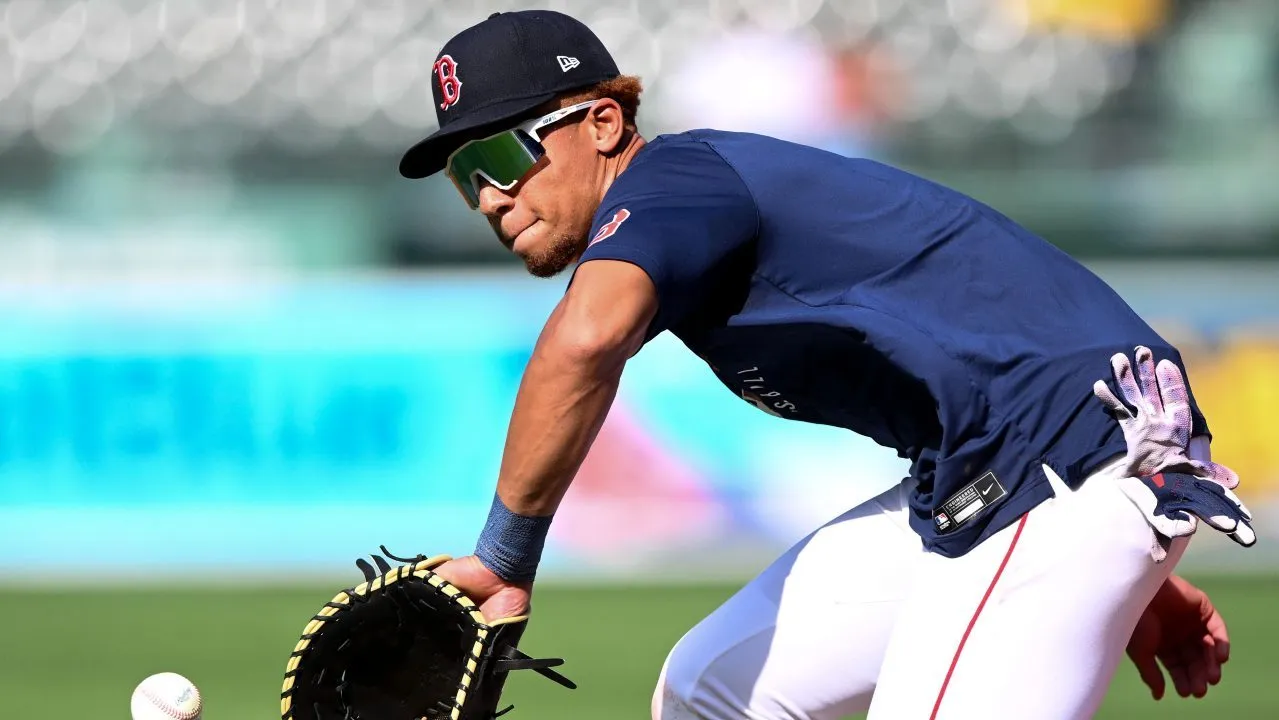The Red Sox hired Chaim Bloom to oversee one of the most tumultuous offseasons of John Henry's tenure. It promised to be a non-stop action frenzy, with the dizzying volume of deals topped only by the star power changing uniforms.
At various points this fall, cases were made for trading any of the following: Mookie Betts, David Price, Jackie Bradley Jr., J.D. Martinez, Andrew Benintendi, Xander Bogaerts, Nathan Eovaldi.
About the only untouchable on the roster was third baseman Rafael Devers; Bloom seemed poised to hang a giant "Everything Must Go!" sign on Jersey Street and then open for business with a folding table, cash box, and sunglasses.
LIVE stream the Celtics all season and get the latest news and analysis on all of your teams from NBC Sports Boston by downloading the My Teams App.
Three months into his tenure, Bloom may yet deal Betts and Price to the Dodgers. For a week we've heard about building momentum and inevitability and how this thing could drop any second.
And yet here we are, with the equipment truck somewhere around the Carolinas, and not only do Betts and Price remain on the roster, the Red Sox still haven't hired a manager, either.
It's enough to make me wonder, perhaps unfairly, if Bloom's inactivity isn't so much a result of rotten circumstances — needing to cut payroll when everyone knows it, starting a managerial search in January — as analysis paralysis.
Boston Red Sox
Find the latest Boston Red Sox news, highlights, analysis and more with NBC Sports Boston.
For a team supposedly in need of major changes, it's remarkable how little the Red Sox have accomplished this winter. They've signed Jose Peraza, Martin Perez, and Kevin Plawecki, and recently brought back Mitch Moreland.
They've cut most of the dead weight clogging the bottom of the roster.
And ... that's about it.
Instead, we've heard a lot of talk about process and long views and guiding principles. We've heard multiple iterations of the team's unofficial 2020 slogan: "Red Sox baseball -- it's a goal, not a mandate!" We've heard rhetoric from Bloom about balancing short-term competitiveness with long-term sustainability.
What we've not heard is, "Mookie Betts has been traded" or "the Red Sox have hired a manager."
On the first issue, the parameters seem clear. The Dodgers are willing to take Price and some portion of the $96 million remaining on his contract, while the Padres want the Red Sox to eat a chunk of the $61 million due outfielder Wil Myers. If the Red Sox trade their best player for what ends up being a net financial loss, this would be an egregious misallocation of resources.
That leaves the Dodgers, who have always made the most sense for both Betts and Price. If the Red Sox want to haggle over Price's $96 million, that's fine, but they can't do so forever. At some point, they run the risk of the Dodgers saying, "Forget it. Keep him."
On the managerial front, the Astros (Dusty Baker) and Mets (don't care, already forgot) wasted little time replacing managers nailed in the sign-stealing scandal. Meanwhile, all we know about the Red Sox's search is that they've been granted permission to speak to Diamondbacks bench coach Luis Urueta, and that Bloom won't let the start of spring training serve as an arbitrary deadline that keeps the team from finding the right man.
"Speed is important because of the unusual timing of this, but we want to make sure we’re not going faster than we should in order to get the best outcome," he said recently.
That's all well and good, but deadlines serve a purpose, because otherwise the search process could stretch to infinity, even though a dream candidate is unlikely to materialize in, say, mid-March that the team hasn't already considered. Make the call.
Clouding the debate is that delays are defensible on both fronts. This offseason has been marked by a late-developing trade market that couldn't take shape until top-tier free agents like Gerrit Cole and Anthony Rendon found new homes. And on the managerial front, the Red Sox remain under investigation by MLB, which complicates their search in ways that did not apply to the Astros and Mets, since they can't be sure if their internal candidates will be implicated.
Making the team's inaction even starker is the juxtaposition of the deliberative Bloom vs. aggressive predecessor Dave Dombrowski, who never met an offseason plan he couldn't execute in one day, which was admittedly extreme. Bloom seems much closer to the methodical Ben Cherington on the GM continuum.
So consider this more of a distant early warning — in leaving no stone unturned, Bloom runs the risk of simply staring at a lot of rocks.


